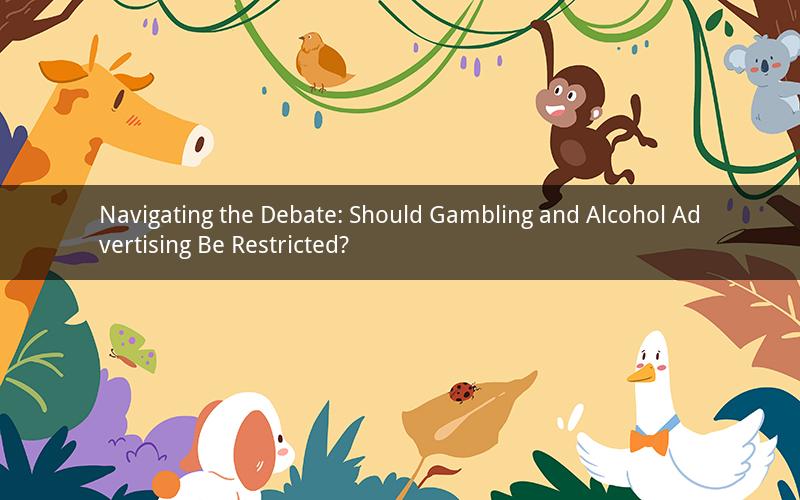
In recent years, the role of advertising in shaping consumer behavior, particularly in relation to gambling and alcohol, has been a subject of intense debate. The question at hand is whether or not such advertising should be restricted. This essay explores the arguments for and against the restriction of gambling and alcohol advertising, considering various perspectives and potential impacts.
Arguments for Restriction
1. Protecting Public Health
One of the primary arguments for restricting gambling and alcohol advertising is the protection of public health. Both substances are known to have detrimental effects on individuals and society as a whole. By limiting advertising, advocates argue that it would reduce the exposure of vulnerable populations, such as young people, to these potentially harmful products.
2. Reducing Problem Gambling and Alcohol Abuse
Exposure to gambling and alcohol advertising has been linked to increased rates of problem gambling and alcohol abuse. Proponents of restriction claim that by limiting advertising, it would reduce the temptation for individuals to engage in these risky behaviors, thereby preventing the development of addiction and related problems.
3. Addressing Social Costs
The social costs associated with gambling and alcohol abuse are substantial. These include increased rates of crime, family breakdown, and mental health issues. By restricting advertising, critics argue that it would help mitigate these negative consequences, ultimately leading to a more socially cohesive society.
Arguments Against Restriction
1. Freedom of Speech
One of the most compelling arguments against restricting gambling and alcohol advertising is the issue of freedom of speech. Advocates argue that individuals have the right to consume and advertise these products as long as they are legal. By limiting advertising, they contend that it would infringe upon this fundamental right.
2. Economic Impact
The gambling and alcohol industries contribute significantly to the economy, generating millions of jobs and generating substantial tax revenue. Restricting advertising could have a detrimental impact on these industries, potentially leading to job losses and reduced tax revenue for governments.
3. Consumer Choice
Supporters of unrestricted advertising argue that individuals should have the right to make informed decisions about their consumption. By providing comprehensive information through advertising, they claim that consumers can make choices based on their personal preferences and values.
Potential Impacts of Restriction
1. Increased Illegal Advertising
One potential impact of restricting gambling and alcohol advertising is the rise of illegal advertising. As demand for these products remains high, it is possible that underground or unregulated advertising channels could emerge, leading to increased difficulty in enforcing restrictions.
2. Shift to Other Advertising Channels
With restrictions in place, advertisers may shift to other channels, such as social media or influencer marketing, to reach their target audience. This could result in a different set of challenges and concerns, as these platforms may be more difficult to regulate.
3. Potential Impact on Public Health
While some argue that restriction would improve public health, others believe that it could have unintended consequences. For instance, individuals who are already addicted to gambling or alcohol may be driven to seek out illegal sources or alternative methods of obtaining these substances, potentially exacerbating their addiction.
FAQs
1. Q: What is the primary argument for restricting gambling and alcohol advertising?
A: The primary argument is the protection of public health, as these substances are known to have detrimental effects on individuals and society.
2. Q: Can restricting advertising lead to increased illegal advertising?
A: Yes, one potential impact of restriction is the rise of illegal advertising as demand for these products remains high.
3. Q: What is the economic impact of restricting gambling and alcohol advertising?
A: The economic impact could be negative, as these industries contribute significantly to the economy through job creation and tax revenue.
4. Q: Why should individuals have the right to consume and advertise gambling and alcohol products?
A: Advocates argue that individuals should have the right to consume and advertise these products as long as they are legal, respecting their freedom of speech.
5. Q: What are the potential unintended consequences of restricting gambling and alcohol advertising?
A: The potential unintended consequences include increased illegal advertising, a shift to other advertising channels, and potential exacerbation of addiction in some individuals.